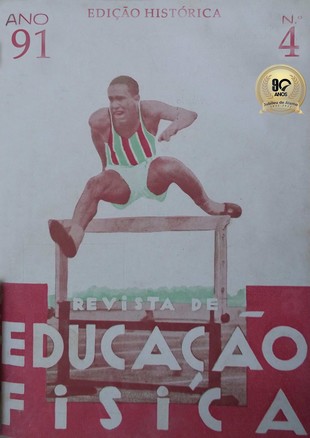Abstract
Introduction: Throughout the COVID-19 pandemic, the scenario in which Physical Education professionals work has undergone changes. With gyms closed and the fear of contamination, the search for physical exercises that could be performed without leaving home increased during the pandemic. As a result, Physical Education professionals had to adapt to serve their students online.
Objective: To identify the motivational factors and level of motivation of strength training practitioners conducted in person and online.
Methods: Observational study, with a convenience sample, in which 35 individuals who practice bodybuilding were selected to participate. To identify the motivational aspects, present during strength training conducted online and in person, a questionnaire was administered over six training sessions.
Results: The results showed that face-to-face training brings more motivation to the student, having more driving factors for conducting physical exercises, providing an environment conducive to greater sociability between practitioners. For men and women, improving health, pleasure, stress control and aesthetics are factors especially important for practicing physical exercise.
Conclusion: According to the results found, although no differences were observed in the frequency and duration of training sessions, training conducted in person can be considered more motivating, as this is a training format conducive to greater sociability among exercise practitioners. physical exercises.
References
Tavares FE, Santos SM. O exercício físico e a COVID-19: Quando o Trabalho conduz ao Sedentarismo e substitui a Atividade Física. ID on Line Revista de Psicologia. 2020;14(51): 1084-1095. doi:10.14295/idonline.v14i51.2660.
Oliveira BN, Fraga AB. Uso das tecnologias digitais para a prática de exercícios físicos: uma revisão integrativa. Conexões. 2020;18: 1-19. doi: 10.20396/conex.v18i0.8658059.
De Sousa RA, Improta-Caria AC, Aras-Júnior R, de Oliveira EM, Soci ÚP, Cassilhas RC. Physical exercise effects on the brain during COVID-19 pandemic: links between mental and cardiovascular health. Neurological Sciences. 2021;42(4): 1325-1334. doi:10.1007/s10072-021-05082-9.
Malta DC, et al. A pandemia da COVID-19 e as mudanças no estilo de vida dos brasileiros adultos: um estudo transversal, 2020. Epidemiologia e Serviços de Saúde. 2020;29(4): e2020407. doi: 10.1590/S1679-49742020000400026.
Prakash N, et al. Effectiveness of social distancing interventions in containing COVID-19 incidence: International evidence using Kalman filter. Economics & Human Biology. 2022;44: 101091. doi:10.1016/j.ehb.2021.101091.
Nicolini H. Depresión y ansiedade en los tempos de la pandemia de COVID-19. Cirugia y Cirujanos. 2020;88(5): 542-547. doi:10.24875/ciru.m20000067.
Ryan RM, Deci EL. Intrinsic and extrinsic motivations: Classic definitions and new directions. Contemporary Educational Psychology. 2000;25(1): 54-67. doi:10.1006/ceps.1999.1020.
Guimarães SÉ, Boruchovitch E. O estilo motivacional do professor e a motivação intrínseca dos estudantes: uma perspectiva da Teoria da Autodeterminação. Psicologia: Reflexão e Crítica. 2004;17(2): 143-150. doi:10.1590/S0102-79722004000200002.
Barbosa ML. Propriedades métricas do inventário de motivação para a prática regular de atividade física (IMPRAF-126). 2006. Dissertação (Mestrado em Ciências do Movimento Humano) – Escola de Educação Física, Universidade Federal do Rio Grande do Sul, 2006.
Santos LG. A ansiedade e o estresse como meios dificultadores da aprendizagem no ensino superior. 2020. Monografia (Ciências Biológicas Licenciatura) - Universidade federal da Paraíba (UFPB), 2020.
American College of Sports Medicine (ACSM). Progression models in resistance training for healthy adults. Medicine and Science in Sports and Exercise. 2009;41: 687-708. doi:10.1249/MSS.0b013e3181915670.
Costa CL, Costa TM, Barbosa Filho VC, Bandeira PF, Siqueira RC. Influência do distanciamento social no nível de atividade física durante a pandemia do COVID-19. Revista Brasileira de Atividade Física & Saúde. 2020;25: 1-6. doi:10.12820/rbafs.25e0123
Wilson PM, Rodgers WM, Blanchard CM, Gessell J. The Relationship between Psychological Needs, Self-Determined Motivation, Exercise Attitudes, and Physical Fitness. Journal of Applied Social Psychology. 2003;33(11): 2373–2392. doi:10.1111/j.1559-1816.2003.tb01890.x.

This work is licensed under a Creative Commons Attribution-NonCommercial 4.0 International License.
Copyright (c) 2022 Journal of Physical Education
